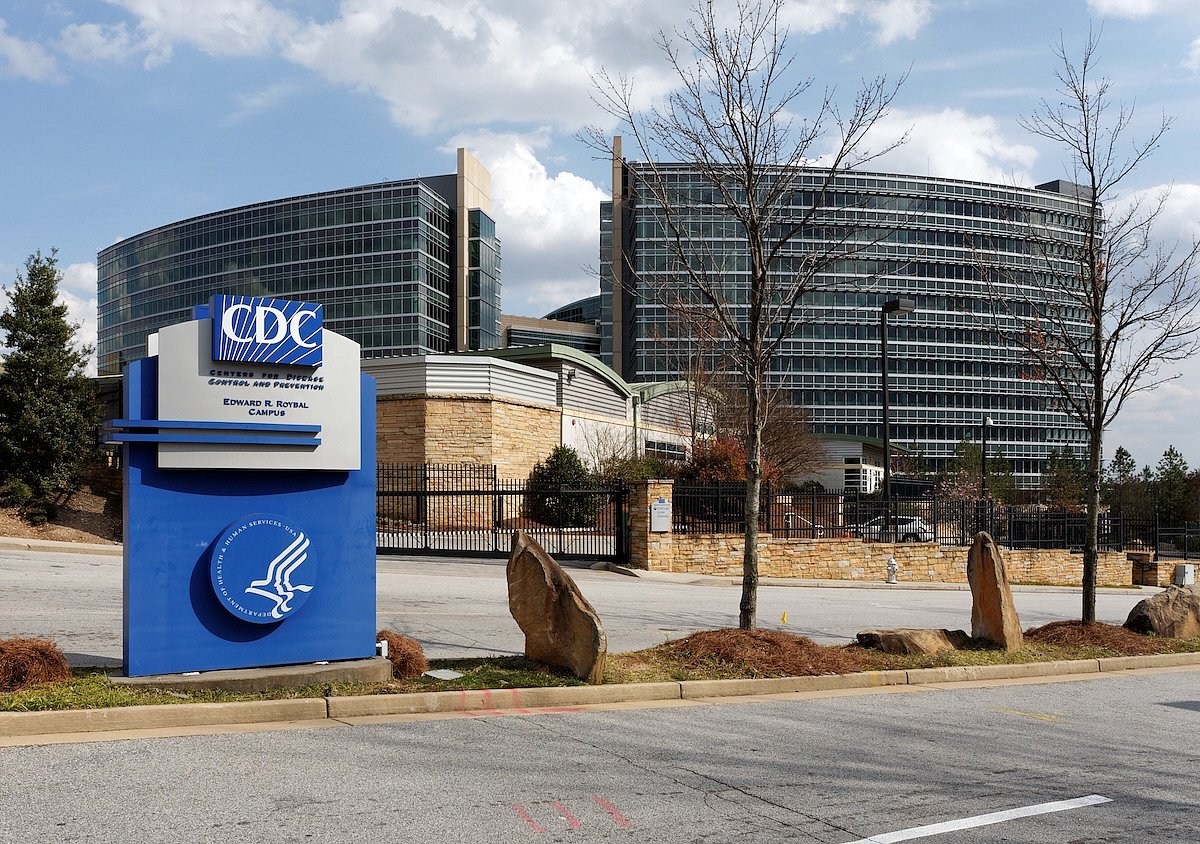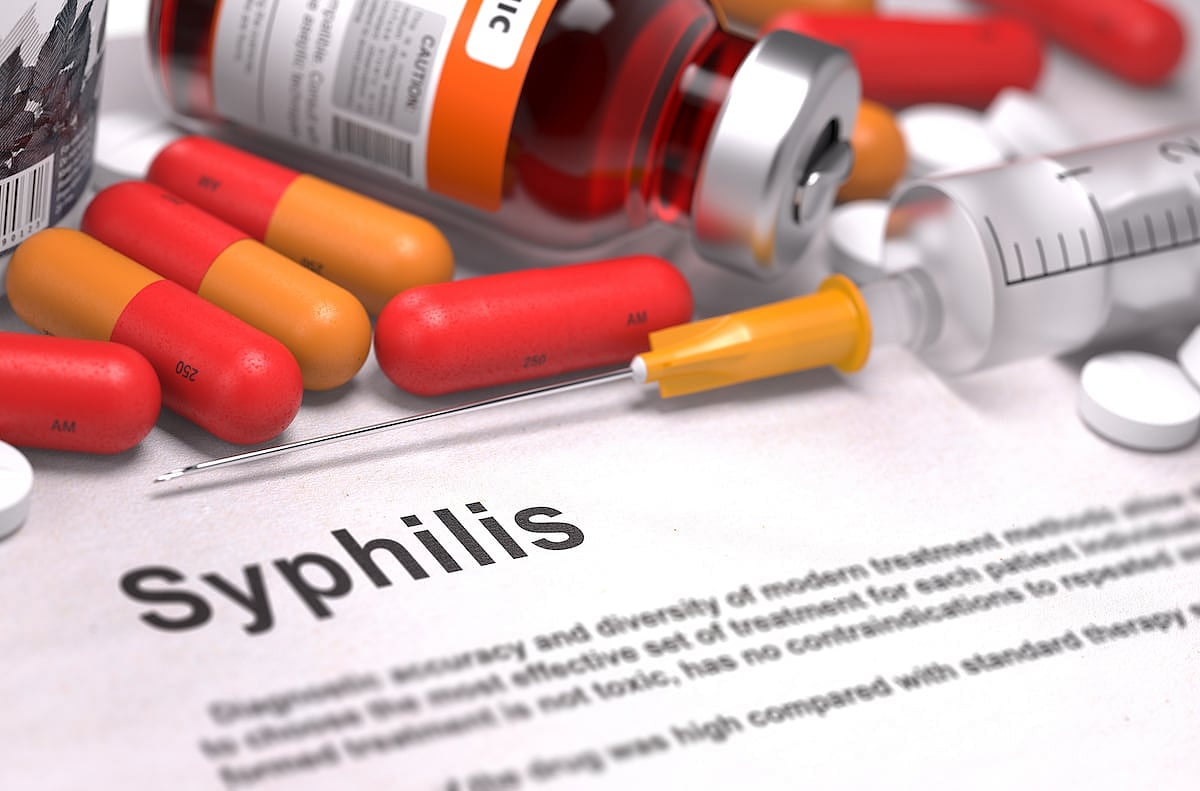Get Healthy!
Results for search "Antibiotics".
24 Apr
Frequent Use of Antibiotics in Infants and Toddlers May Increase Asthma/Allergy Risk
A new study finds frequent use of antibiotics in children under 2 significantly increases their risk for asthma, food allergies and hay fever.
Health News Results - 82
A new rapid test could improve treatment of urinary tract infections (UTIs), by identifying the most effective antibiotic for each individual patient.
The test applies different antibiotics to bacteria found in urine samples, to see which one best suppresses bacterial growth, researchers recently reported in the journal ...
- Dennis Thompson HealthDay Reporter
- |
- December 18, 2025
- |
- Full Page
Dangerous infections that no longer respond to antibiotics are spreading quickly around the world, increasing by as much as 15% a year, according to a new report from the World Health Organization (WHO).
The report found that 1 in 6 infections worldwide in 2023 was resistant to common antibiotics, including drugs used to treat
Infections caused by bacteria that no longer respond to many antibiotics are climbing at an alarming pace in the U.S., new federal data shows.
Between 2019 and 2023, these hard-to-treat infections rose nearly 70%, fueled largely by strains carrying the NDM gene, according to researchers at the U.S. Centers for Disease C...
- I. Edwards HealthDay Reporter
- |
- September 24, 2025
- |
- Full Page
A single dose of penicillin works just as well to cure early syphilis as the three-injection regimen now used by many doctors, a new clinical trial says.
Second and third doses of benzathine penicillin G (BPG) don&r...
- Dennis Thompson HealthDay Reporter
- |
- September 4, 2025
- |
- Full Page
Shifting to a plant-based diet can help keep people from being plagued by multiple health problems as they age, a new study says.
People whose diets included more veggies, fruits, whole grains, legumes and plant-based foods had 32% lower odds of developing two or more chronic illnesses, resear...
- Dennis Thompson HealthDay Reporter
- |
- August 29, 2025
- |
- Full Page
A new way to battle bloodborne staph infections could help save lives while combating the rise of antibiotic-resistant bacteria, according to new clinical trial results.
Two intravenous doses of the antibiotic dalbavancin delivered seven days apart worked just as well as daily IV doses of conventional antibiotics in quelling Staphylococcus aureus bloodstream infections, researche...
- Dennis Thompson HealthDay Reporter
- |
- August 14, 2025
- |
- Full Page
Urgent care clinics are handing out fistfuls of antibiotics, steroids and opioids for conditions these drugs won’t help, a new study says.
"Previous studies had shown that patients continue to receive antibiotics for diagnoses where they may not be indicated, such ...
- HealthDay Reporter
- Dennis Thompson
- |
- July 23, 2025
- |
- Full Page
Worried about maintaining your regularity as you grow older?
Changing your diet can reduce the risk of chronic constipation in middle-aged folks and seniors, a new study says.
The Mediterranean diet and plant-based diets were found to best ward off constipation, researchers reported re...
- HealthDay Reporter
- Dennis Thompson
- |
- July 14, 2025
- |
- Full Page
A healthy plant-based diet might protect people from inflammatory bowel diseases, a new study says.
People noshing healthy plant-based foods had a 14% lower risk of Crohn’s disease and an 8% lower risk of ulcerative colitis, researchers found.
On the other...
- HealthDay Reporter
- Dennis Thompson
- |
- July 9, 2025
- |
- Full Page
Antibiotic resistance is an urgent global public health threat, as more microbes gain the ability to thwart essential bacteria-killing drugs.
And there's a hidden means by which antibiotic resistance is likely increasing, researchers say.
Manure from livestock is a major reservoir for antibiotic resistance genes that could threaten human health, researchers reported June 27 in the j...
- HealthDay Reporter
- Dennis Thompson
- |
- July 2, 2025
- |
- Full Page
Overuse of antibiotics might increase kids’ risk of developing asthma and allergies, by disrupting their gut bacteria during a crucial stage of child development, a new study says.
Exposure to antibiotics prior to age 2 is associated with a 24% increased risk of asthma and 33% increased risk of food al...
- HealthDay Reporter
- Dennis Thompson
- |
- April 23, 2025
- |
- Full Page
Preventing or treating infections could be a key means of warding off dementia, a new evidence review says.
Vaccines, antibiotics, antiviral medications and anti-inflammatory drugs are all associated with a reduced risk of dementia, researchers reported in a study published Jan. 21 i...
- HealthDay Reporter
- Dennis Thompson
- |
- January 23, 2025
- |
- Full Page
Cases of a bacterial infection called “rabbit fever” have been increasing during the past decade.
Cases of tularemia increased by 56% during the 2010s compared to the previous decade, researchers report in the CDC’s Morbidity and Mortality Weekly Report.
Half of all the nearly 2,500 reported cases between 2011 and 2022 came from four states: Arkansas, Miss...
- HealthDay Reporter
- Dennis Thompson
- |
- January 2, 2025
- |
- Full Page
Seniors with an infection can take antibiotics without fear of harming their brain health.
Antibiotics don’t appear to increase the risk of cognitive decline or dementia in older adults, researchers report in the journal
For decades, surgery to remove an inflamed appendix has been a rite of childhood for many.
But a new study says treating appendicitis with antibiotics, rather than surgery, is the best way to address most cases.
Using antibiotics to treat uncomplicated cases of appendicitis resulted in less pain and fewer days off from school for kids, researchers report in the
Certain gut microbes might be linked to a person’s risk of developing Parkinson’s disease, a new study suggests.
People prescribed multiple courses of penicillin antibiotics have a modestly lower risk of developing Parkinson’s, researchers found.
Those antibiotics ...
- HealthDay Reporter
- Dennis Thompson
- |
- October 25, 2024
- |
- Full Page
Senior residential homes are breeding grounds for antibiotic-resistant bacteria, due to overprescription of antibiotics, a new study says.
Stool samples provided by Australian senior home residents contained bacteria with a wide range of genes linked to antibiotic resistance...
- HealthDay Reporter
- Dennis Thompson
- |
- August 30, 2024
- |
- Full Page
The crowded microbial space of the human gut is revealing potential routes to new antibiotics, scientists report.
Molecules isolated from studying the gut's microbiome have yielded unexpected results that could lead to new types of the drugs, said study first author
MONDAY, Aug. 5, 2024 (HeathDay News) -- A new antimicrobial compound can effectively clear “flesh-eating†bacterial infections in mice, a new study shows.
The compound could be the first in an entirely new class of antibiotics, which could prove invaluable in the fight against
Synthetic antibiotics that attack bacteria in two directions at once could be the solution for combatting antimicrobial-resistant bugs, a new study claims.
These dual-action antibiotics, called macrolones, disrupt bacterial cell function in two different ways.
It’s nearly impossibl...
- HealthDay Reporter
- Dennis Thompson
- |
- July 25, 2024
- |
- Full Page
It's long been known that popping the antibiotic doxycycline within 72 hours of a risky sexual encounter can greatly reduce a person's risk for a sexually transmitted infection (STI).
In fact, the U.S. Centers for Disease Control and Prevention
Early exposure to antibiotics might increase a kid's risk of asthma by altering their gut bacteria, a new mouse study finds.
Antibiotics could specifically lower gut production of indole propionic acid (IPA), a biochemical that's crucial to long-term protection against asthma, researchers reported July 15 in...
- HealthDay Reporter
- Dennis Thompson
- |
- July 16, 2024
- |
- Full Page
Over-the-counter nasal sprays could be a potent weapon against a major public health threat -- antibiotic resistance, researchers report.
Their analysis, which looked at data from nearly 14,000 adults, found that common nasal sprays could help keep upper respiratory tract infections at bay, reducing the need for antibiotics.
Antibiotic resistance caused by overuse and misuse of thes...
- HealthDay Reporter
- Carole Tanzer Miller
- |
- July 15, 2024
- |
- Full Page
In new guidelines released Tuesday, U.S. health officials now recommend that certain people take the antibiotic doxycycline as a morning-after pill to lower the risk of some sexually transmitted diseases (STDs).
The latest recommendations only apply to gay and bisexual men and transgender women who have had an STD in the past year and are at high risk of getting infected again. While pas...
- HealthDay Reporter
- Robin Foster
- |
- June 5, 2024
- |
- Full Page
Clostridioides difficile (C. difficile) is a leading cause of illness and death, especially for frail and hospitalized Americans.
Now, a new study suggests that the leading antibiotic used to fight it, vancomycin, may be losing potency against this killer.
"It's an alarming development in the field of
As many patients already know, urinary tract infections (UTIs) can recur despite the use of antibiotics.
So, it's welcome news that the U.S. Food and Drug Administration on Wednesday approved Pivya (pivmecillinam) to fight bacterial UTIs.
"UTIs are a very common condition impacting women a...
- HealthDay Reporter
- Ernie Mundell
- |
- April 25, 2024
- |
- Full Page
Want to prevent a respiratory infection?
A fingerful of Neosporin antibiotic swabbed inside your nose might help you fight off a range of invading respiratory viruses, a new study claims.
Lab animals whose noses were treated using neomycin -- the main ingredient in over-the-counter Neosporin ointment -- mounted a robust ...
- HealthDay Reporter
- Dennis Thompson
- |
- April 23, 2024
- |
- Full Page
Doctors sometimes prescribe antibiotics to help treat a cough, but a new study shows the drugs won't help reduce the severity or duration of coughing -- even if a bacterial infection is the culprit.
Lower respiratory tract infections that cause coughing have the potential to become more dangerous, with 3% to 5% of these patients suffering from
Dogs and cats can pass antibiotic-resistant bacteria to their owners, raising concerns that household pets could be contributing to the world's antibiotics crisis, a new study says.
Cases of these "superbugs"being passed between sick dogs and cats and their healthy owners have been identified in the U.K. and Portugal, according to research presented at the European Society of Clinical Mic...
- HealthDay Reporter
- Dennis Thompson
- |
- April 15, 2024
- |
- Full Page
A strain of highly antibiotic-resistant gonorrhea first emerged in China in 2016, and cases of this tough-to-treat infection have tripled there in just five years, Chinese researchers report.
It's a warning to the rest of the world, they said.
Strains resistant to the first-line treatment ceftr...
- HealthDay Reporter
- Ernie Mundell
- |
- March 28, 2024
- |
- Full Page
Just one dose of the antibiotic doxycycline taken after sex halved the number of chlamydia and syphilis cases in San Francisco, promising new research shows.
In the study, gay and bisexual men and transgender women who had a history of sexually transmitted infections or multiple sex partners were given a supply of the antibiotic and asked to take two 100-milligram pills within 72 hours of...
- HealthDay Reporter
- Robin Foster
- |
- March 5, 2024
- |
- Full Page
A new and worrisome antibiotic-resistant form of E. coli has been identified at a children's hospital in China.
Already, so-called ST410 strains of the E. coli bacterium -- resistant to last-resort antibiotics called carbapenems -- have become the most common drug-resistant strains seen in Chinese hospitals, according to British researchers.
But a new, more virulent version of ST410...
- HealthDay Reporter
- Ernie Mundell
- |
- February 1, 2024
- |
- Full Page
U.S. doctors are prescribing antifungal creams to patients with skin complaints at rates so high they could be contributing to the rise of drug-resistant infections, new research shows.
These are "severe antimicrobial-resistant superficial fungal infections, which have recently been detected in the United States," noted a team led by Jeremy Gold, a researcher at the U.S. Centers for Disea...
- HealthDay Reporter
- Ernie Mundell
- |
- January 11, 2024
- |
- Full Page
Researchers report that a new type of antibiotic has proved its mettle against a deadly superbug.
Acinetobacter baumannii, a bacteria goes by the nickname CRAB, can trigger serious infections in the lungs, urinary tract and blood, according to the U.S. Centers for Disease Control and Prevention. Unfortunately, it's resistant to a class of powerful broad-spectrum antibiotics calle...
- HealthDay Reporter
- Robin Foster
- |
- January 4, 2024
- |
- Full Page
Data showing that the antibiotic doxycycline might prevent a sexually transmitted infection (STI) if taken soon after sex made headlines earlier this year.
As surging numbers of cases of syphilis and gonorrhea affect more Americans, here's what you need to know about using the drug.
"If you're actively having sex and not using con...
- HealthDay Reporter
- Ernie Mundell
- |
- November 18, 2023
- |
- Full Page
The first new antibiotic for gonorrhea -- the second most common sexually transmitted disease -- has shown promise in a clinical trial.
That news should come as a relief to public health experts, because gonorrhea has become resistant to all but one of the existing antibiotics used to treat it.
This new antibiotic, called zoliflodacin, was seen in the
A new study on Clostridioides difficile infections finds that choosing an alternative antibiotic for high-risk patients with pneumonia can reduce infection risk.
C. diff infections can be deadly, and they are often acquired by hospitalized patients taking broad-spectrum antibiotics.
More than 450,000 C. diff infections are reported in the United States eac...
- HealthDay Reporter
- Cara Murez
- |
- November 2, 2023
- |
- Full Page
Many antibiotics long used to treat common childhood infections are no longer effective because of antibiotic resistance.
The authors of a new study say global guidelines on antibiotic use need to be updated to reflect this, and they called for an increased focus on developing new antibiotics for in...
- HealthDay Reporter
- Cara Murez
- |
- November 1, 2023
- |
- Full Page
Millions of people undergo joint replacement surgery every year. To prevent infection, doctors often give them a second antibiotic -- but new research suggests this can backfire.
Adding a second antibiotic at the time of hip and knee replacement surgery may actually increase infections, researchers in Australia found.
"Given the number of joint replacements performed in Austral...
- HealthDay Reporter
- Cara Murez
- |
- October 19, 2023
- |
- Full Page
New research shows that an antibiotic effective for bacterial pneumonia also appears to fight treatment-resistant staph infections.
The drug is ceftobiprole. It appeared successful in fighting methicillin-resistant staph infections, sometimes called MRSA. It showed similar benefit when tested against the antibiotic daptomycin to treat complicated Staphylococcus aureus infections....
- HealthDay Reporter
- Cara Murez
- |
- September 28, 2023
- |
- Full Page
New research on a leading cause of foodborne illness has linked a large share of Michigan infections to antibiotic-resistant bacteria strains.
More than 100 strains of Campylobacter jejuni circulating in Michigan are resistant to at least one antibiotic, according to researchers from Michigan State University (MSU) and the Michigan Department of Health and Human Services. More th...
- HealthDay Reporter
- Cara Murez
- |
- September 6, 2023
- |
- Full Page
Most people with appendicitis who are given antibiotics -- instead of having their appendix removed -- fare well over the long haul, new research indicates.
The conclusion follows roughly two decades spent tracking patient outcomes in Sweden.
The study found that among those initially treated solely with antibiotics, rather than surgery, less than half ended up experiencing another ...
- HealthDay Reporter
- Alan Mozes
- |
- August 10, 2023
- |
- Full Page
Doctors who overprescribe antibiotics are often blamed for medication-resistant illnesses, but new research points to another potential culprit: air pollution.
Controlling air pollution could reduce antibiotic resistance, greatly reducing deaths and economic costs, according to a new in-depth global analysis were published Aug. 7 in The Lancet Planetary Health..
"Anti...
- HealthDay Reporter
- Cara Murez
- |
- August 8, 2023
- |
- Full Page
Testing children with a suspected sinus infection for three common bacteria might cut unnecessary antibiotic prescribing, a new study suggests.
Only half of kids with sinusitis -- inflammation or swelling of the sinuses -- show any improvement with antibiotics, which target bacterial infections, not viral infections, the researchers note.
"When a child comes in with a sore thro...
- HealthDay Reporter
- Steven Reinberg
- |
- July 26, 2023
- |
- Full Page
Infectious disease experts are warning that a shortage of a key antibiotic for treating the sexually transmitted infection syphilis could make it hard to fight the spread of the disease.
The United States already has a big problem with syphilis, with cases rising for more than 20 years. Cases increased nearly 75% between 2017 and 2021 alone, bringing the number to more than 176,000 in 202...
- HealthDay Reporter
- Cara Murez
- |
- July 7, 2023
- |
- Full Page
Bacteria found in hospital patients in Ukraine is showing extreme antibiotic resistance, making it harder to treat the wounded and ill in this war-torn country, new research warns.
"I am quite thick-skinned and have witnessed numerous situations involving patients and bacteria," said study author and bacteriologist
"Superbug"infections are increasing in U.S. hospitals, and a coalition of medical groups has now issued a set of updated recommendations to protect patients.
These guidelines are meant to prevent the spread of methicillin-resistant Staphylococcus aureus, also known as MRSA, the authors of the recommendations argue.
MRSA causes about 10% of hospital-associated infections in ...
- HealthDay Reporter
- Dennis Thompson
- |
- June 27, 2023
- |
- Full Page
Pfizer Inc. warned doctors this week of an impending shortage of Bicillin, its long-acting, injectable form of penicillin.
The medication is not commonly used for children because alternatives such as amoxicillin are preferred over the Bicillin shot, the company explained in a stat...
- HealthDay Reporter
- Cara Murez
- |
- June 16, 2023
- |
- Full Page
Babies around the world are dying because the antibiotics used to treat sepsis infections in hospitals are losing their effectiveness, a new report warns.
A team of 80 researchers from four continents has been studying the issue of antibiotic-resistance and newborn sepsis in 19 hospitals.
"The observational study has been instrumental in providing the high-quality data that we ...
- HealthDay Reporter
- Cara Murez
- |
- June 12, 2023
- |
- Full Page



















































